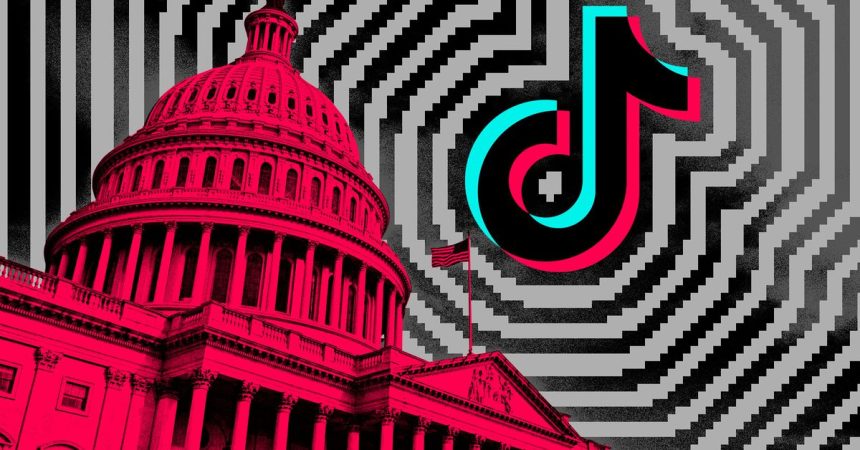The US Court of Appeals for the DC Circuit has delivered a resounding blow to TikTok, upholding a law that could ban the popular social media platform in the United States. The unanimous ruling suggests that TikTok, owned by Chinese parent company ByteDance, faces a genuine threat of expulsion unless it is sold by a looming deadline. While TikTok plans to appeal to the Supreme Court and President-elect Trump has expressed intentions to intervene, the legal path ahead appears increasingly treacherous. Experts like Cornell Law School professor Gautam Hans view a Supreme Court reversal as improbable, citing the court’s deference to national security concerns and the bipartisan nature of the congressional action. The court’s opinion, carefully constructed to withstand scrutiny, rests solely on public records, avoiding the classified evidence TikTok contested, further solidifying its stance.
Despite the government’s broad support for the law, free speech advocates express alarm, arguing that a ban sets a dangerous precedent, potentially enabling the suppression of communication platforms without evidence of imminent harm. The American Civil Liberties Union underscores the absence of such evidence in TikTok’s case. This clash between national security interests and free speech principles lies at the heart of the legal battle surrounding TikTok’s fate.
The court’s justification for upholding the potential ban stems from its weighing of free speech against national security. TikTok argued that a ban would equate to speech suppression for the platform and its US users. However, the government countered, emphasizing the risk posed by ByteDance’s Chinese ownership, citing potential access to American user data and covert manipulation of the recommendation algorithm. While acknowledging the First Amendment implications and applying strict scrutiny, the court ultimately sided with the government, asserting the urgency of national security concerns presented by the People’s Republic of China. The court found insufficient evidence of ulterior motives by lawmakers despite discussions surrounding objectionable content on the platform.
The court’s decision heavily emphasizes deference to Congress and successive presidents, highlighting the “extensive, bipartisan action” culminating in the law targeting foreign adversary control. This deference, while underscoring the perceived gravity of the national security threat, has drawn criticism. The Electronic Frontier Foundation’s David Greene, while supporting the application of strict scrutiny, criticized the reliance on speculative future harms, given the lack of public evidence of significant Chinese government data access or platform manipulation.
Beyond the central First Amendment debate, the court also addressed TikTok’s claims concerning a bill of attainder and Fifth Amendment violations. The court dismissed the bill of attainder argument, asserting the law’s non-punitive aims and the existence of a framework for applying similar restrictions to other apps. The court found TikTok’s claims of unequal treatment unconvincing, citing the company’s extensive engagement with the government during the process. Furthermore, the Fifth Amendment takings claim was rejected as the court viewed the potential sale as an opportunity for ByteDance to profit from a valuable asset. However, the Chinese government’s prohibition on a sale complicates this aspect.
The court’s opinion also addresses TikTok’s prior attempts to allay national security concerns through data siloing under “Project Texas.” The judges rejected these mitigation efforts, highlighting the government’s considered judgment that such measures are insufficient. The court argued that extensive government scrutiny and engagement with TikTok and Oracle over two years underscores the validity of their concerns. Furthermore, the court posits that government entanglement in a communications platform’s daily operations would raise separate First Amendment issues, favoring divestiture as a cleaner solution. This stance places President-elect Trump’s promise to save TikTok in a precarious position, given the court’s reliance on the government’s national security assessment, the core of the ban’s justification. Any action to save TikTok could require circumventing the law or finding a buyer, the latter potentially demanding China’s unlikely cooperation.



